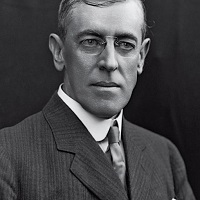- Features
- Feel the Love
- Death Threats And Wishes
- Threats Other Than Death
- Assault, Battery and Worse
- Love for Women
- Vandalism
- Guns, Bombs, and Arson
- Leftists Wish Disease On Others
- Anti-Christian
- Anti-Semitism
- Racism
- Love of Country
- Love For The Police
- Hoaxes And False Flags
- Smears
- Smearing The American People
- Smearing The United States Military
- Race Based Smears
- Vile And Sick Accusations
- Smearing Them As Nazis
- Smearing Them as KKK
- Smearing Women
- Smearing Men
- Smearing the Tea Party and Conservatives
- Smearing Global Warming Skeptics
- Smearing Republicans
- Politically Motivated Smears
- Smearing The President
- Oops
- Out Of Context
- Hoax Based Smears
- Fabricated Quotes
- Hate Hate Hate And More Hate
- Incitement
- They Know Where You Live
- They Got What They Deserved
- Hearts and Flowers
- Left-Wing Radio
- Dehumanzing Their Opponents
- The Illegitimate Presidency Of Joe Biden
- Liberals Shutting Up The Opposition
- Liberal Social Media Shutting Up The Opposition
- Re-Education and Redemption
- Obama and Supporter Tactics
- Using The Force of Government
- You Will Be Made To Care
- Intimidation and Threats of Violence
- Using Physical Force and Violence
- Publishing Your Home Address
- Going After Conservative Donors
- SWATing
- Threatening Careers
- Smears and Character Assassination
- Criminal Methods
- Boycotts
- Shouting Them Down
- Intellectual Thuggery
- Political Correctness
- Covering Their Ears
- Critical Race Theory
- Liberal Hypocrisy
- Liberals Where ARE You?
- Liberal Men and Girl Trouble
- Liberal Sexual Harassment Enablers
- Religious Intolerance And Hypocrisy
- Eco Hypocrisy
- Private Schools for Our Kids
- Taxes Are For The Little People
- Greed
- Limousine Liberals
- National Debt
- War and Terror Hypocrisy
- Mockery
- Free Speech Hypocrisy
- Violent Peace Protests
- Guns, Guns, Guns
- Look For The Union Label
- Women And Minorities Hardest Hit
- Equal Pay
- Pro-Choice
- Moral High Ground
- Liberal Mansions
- The Liberal Narrative
- The Liberal Narrative And The Wuhan Lab Leak
- The Capitol Hill Insurrection
- When Democrats In Charge: Expect Less
- Only White People Can Be Racist
- The Liberal Narrative And The 2016 Election
- Challenges To The Narrative
- Religion of Peace
- Peace If Women In Charge
- Homosexuality Is Normal And Healthy
- The Liberal Narrative And Marijuana
- The Right Is Questioning Our Patriotism
- The 2000 Election Was Stolen
- War And Terror
- American Intolerance
- Liberal Narrative On Education
- Liberal Narrative On The Economy
- The Environmental Narrative
- Fake Quotes And Urban Legends
- Matthew Shepard Hate Crime
- Terrorism By Anti-Government Groups
- Bumper Sticker Liberalism
- Practice Random Acts of Kindness
- Hate Is Not A Family Value
- Imagine World Peace
- Coexist
- Stop the Endless War
- Dissent Is The Highest Form Of Patriotism
- Well Behaved Women Seldom Make History
- Celebrate Diversity
- Teach Peace
- Think Education Is Expensive? Try Ignorance.
- Live Better Work Union
- Arms Are For Hugging
- Live Simply That Others May Simply Live
- Love Your Mother
- Straight But Not Narrow
- Don't Drive Faster Than Your Angels Can Fly
- We Are Guided by Science
- We Are Smarter
- We Care More
- Restore Respect for US After Bush
- You Are Immoral If You Disagree
- We Practice Tolerance
- Risks Worth Taking
- Acceptable Prejudices
- Liberal Stereotyping
- Culture War
- Victimized By Race Or Sex
- Founding Fathers
- Multiculturalism
- Suburbia Is Evil
- Bill Clinton - DADT
- The Narrative And Ignorance
- The Liberal Narrative And Racism
- Xenophobia
- African Americans And The Right
- Imposing Morality
- Homophobia
- The Liberal Narrative On Sexism
- Feminism And The Liberal Narrative
- Female Superiority
- The Liberal Narrative And Crime
- Separation Church And State
- Safe Legal And Rare
- Income Inequality
- Moral Relativism
- Firearms And Hunting
- White Privilege
- Microagressions
- Gay Marriage
- Ten Percent
- Human Nature
- Overwhelmingly White
- Cultural Appropriation
- Thanksgiving
- Liberal Heroes
- Liberal Villains
- The Tea Party Narrative
- Success in America
- Voter ID Is Racist Intimidation
- Trump Derangement Syndrome
- Leftist Groups
- Antifa
- Black Lives Matter
- Social Justice Warriors
- Bernie Bros
- Occupy Wall Street
- Occupy Domestic Terrorism
- Ridiculing Occupy
- Filth And Squalor
- Assault: Human Waste And Fluids
- Occupy Violence
- Occupy Sexual Assault
- Occupy Hypocrisy And Greed
- Occupy Degeneracy
- Occupy Damages
- Occupy Disruption
- The Drugs Of Occupy
- Occupy Wall Street Character
- Progressive Parents
- Occupy Anti-Semitism
- Occupy Wall Street Arrests
- Occupy Endorsements And Support
- Occupy Wall Street Metaphors
- Cleanup And Closure Of Occupy
- Occupy Idle No More
- Unions
- NPR Government Radio
- The UN
- Feminists
- PBS Government TV
- NAACP
- ACLU
- Communists
- Socialists
- Fascists
- The Early Progressives
- Democratic Socialists Of America
- ACORN
- ANSWER
- Common Cause
- Code Pink
- Media Matters
- Nobel Committee
- Bloggers
- Atheists
- Satanists
- Animal Rights
- Amnesty International
- Center For American Progress
- Black Panthers
- Weather Underground
- The Sierra Club
- Greenpeace
- Liberal Democrats In Britain
- The Religious Left
- Southern Poverty Law Center
- Tides
- The Green Party
- Organizing for Action
- Leaving The Left
- Environment
- Eco Terrorists
- The EPA
- Global Warming
- Scientists Speak Out
- AGW: Reasonable Doubt
- Alarmists and Well Meaning Mistakes
- The IPCC
- The Cause
- Climategate
- Global Warming: The Religion
- Treatment Of Apostates
- The Hockey Stick
- The Computer Models
- The Pause
- Global Warming Becomes Climate Change
- Real Reasons
- Bad Environmental Predictions
- Inconvenient Truth
- Political Manipulation
- Weather Is Not Climate
- Global Warming Hypocrisy
- Solar Output
- Snowfall
- CO2
- Ice
- Sea Level
- Drought
- Wildlife
- Severe Weather
- Hysteria
- Desperation
- Alternative Scares
- Global Mockery
- The Final Nails
- Ocean Acidification
- Eco Demagoguery
- Environmental Hypocrisy
- Crazies
- Misguided Policy
- Scientific Fraud
- Political Fraud
- Pollution
- Love For Humanity
- The Rainforests
- Hybrid And Electric Cars
- Earth Day
- Earth Hour
- Fracking
- Enviro Mental Mockery And Fun
- The Press
- Defending The Narrative
- Democrats With Bylines
- Fawning
- Blatant Bias
- The Character Of The Press
- MSNBC And NBC
- CNN
- Government Lapdogs
- Journolist
- The New York Times
- Deliberate Fraud
- CBS: The Wall Within
- Rathergate
- ABC: Food Lion
- Flushed Koran
- The Baghdad Diarist
- Stephen Glass
- Walter Duranty
- NBC: Exploding Truck
- CNN: Tailwind
- Jayson Blair
- Eason Jordan
- Jack Kelley
- NBC: Zimmerman Tape Edit
- Neo-Nazis On Patrol
- Staged Events
- NBC Wawa Video Edit
- NBC Hides Race of Gun Carrying Protester
- NBC Edits Video Of Gun Hearing
- The Press Is Fooled
- Left Wing Advocacy
- Smears By The Press
- Fixation On Bush
- Name That Party
- Leftist Influences
- Sheer Brilliance From The Press
- Liberal Press Hypocrisy
- Liberalism in Action
- Incitement and Domestic Terrorism
- The Liberal Mob
- Liberals Threatening The Supreme Court
- Faking The Hate
- Faking Minority Status
- Leftists Cashing In
- Cultural Marxism
- Imposing Their Morality
- Epic Failure
- Off The Reservation
- Victims Of The American Left
- Unintended Consequences
- The Definition of Insanity
- Predictable Results
- Astroturfing USA
- Fascist Behavior
- Burning Books
- Liberal Demagoguery
- Rush To Judgement
- 1984
- Sexual Degeneracy
- Calls To Arms
- Protests
- Violent Protests
- Liberal Elitism
- Their Bubble
- Mugged By Reality
- Blue On Blue
- Discrimination
- Giving Aid And Comfort
- Patriotic Liberals In Action
- Great Plans
- Central Planning
- African Americans
- Sheer Brilliance
- Baghdad Bobbing
- Judicial Activism
- Redistribution Of Wealth
- Liberal Businesses
- The Technocratic Elite
- Election
- Socialized Medicine
- Obamacare
- The ObamaCare Train Wreck
- Obamacare: Liberal Technical Incompetence
- The Marketing of Obamacare
- Healthcare.gov
- A New Bureaucracy is Born
- IRS Enforcement
- You Will Be Able to Keep Your Doctor
- We Will Control The People
- The Waivers
- Constitution
- Brilliance
- Backlash
- Cost Savings
- Privacy
- The Best Laid Plans
- The Push For Single Payer
- ObamaCare: Hurting Real Americans
- Obamacare: Economic Damage To US
- Obamacare Death Panels
- Freeing Americans From Having To Work
- ObamaCare Co-ops
- The Obamacare Collapse
- Terminal Incompetence
- Canada
- Britain
- Cuba
- Scandinavia
- VA
- Coming To America
- Using Influence To Get Care
- Escape From Socialized Medicine
- Obamacare
- The Blue Model
- Democrats
- Notable Leaders
- Democrat Embarrassment
- 2012 DNC Convention
- Democrat Kooks and Nutburgers
- Embarassing Democrat Criminal Activity
- Democrats Embarrass the United States
- Democrat Sexual Perversion and Degeneracy
- Democrats and Communists
- Democrats Not Ready for Prime Time
- Embarrassing Democrat Incompetence
- Embarrassing Democrat Dishonesty
- Embarrassing Democrat Character Flaws
- The Paul Wellstone Funeral
- Westboro Baptists: Democrats
- Democrats Arming Criminals and Terrorists
- Democrat War on Women
- Democrats and Sex
- Robert Byrd: Ex-Klansman
- Democrat Race Relations
- Democrats And The KKK
- Post Civil War
- Woodrow Wilson And Race
- Opposition to Anti Lynching Bill
- FDR And Racism
- Harry Truman
- 1954 Brown v. Board of Education
- 1957 Civil Rights Act
- Civil Rights and Voting Rights Acts
- LBJ And Race
- Opposition To Desegregation
- Democrat 2008 Primaries
- Penalties for Being Off The Reservation
- How Democrats View People of Color
- Crime and Character
- Democrats And The Criminal Vote
- Democrat Character
- Fraud Waste Abuse
- Assault & Battery
- Paying Their Taxes
- Democrat Corruption
- Democrat Election Antics
- Election Crime
- Election 2012
- Democrats Cut And Run
- Warm And Fuzzy Democrats
- Democrats And Theft
- Democrats Convicted
- Drugged Out Democrats
- Kooky Democrats
- Democrat Demagoguery
- Taking Care of the Little Guy
- Democrat Brilliance
- Democrat Malfeasance
- Democrat Hypocrisy
- Democrat Gaffes
- Democrats And The Constitution
- Democrats And The National Debt
- Foreign Relations
- Democrat Supporters
- Failure Of The Democrats
- Democrat Dirty Tricks
- Using Government To Steer Elections
- Academia
- Racism In Academia
- Resegregation In Academia
- Hate And Incitement
- Institutional Anti-Semitism
- Campus Anti-Semitism
- Sex And Degeneracy
- Poor Character
- Microagressions
- Academia And Crime
- Pee Pee And Poo Poo
- Academia And Free Speech
- Political Correctness In Academia
- Free And Open Inquiry
- College Indoctrination
- The Echo Chamber
- Campus Safe Zones
- Protection From Incorrect Thought
- A Quality Education
- Institutional Greed
- Open Academic Minds
- Incompetence In Academia
- Great Thoughts And Contributions
- A Welcome Home For Retired Terrorists
- Academics Living In Fear
- Public Schools
- Public School Indoctrination
- Sex Crime
- Common Core
- Racism In Public Schools
- Drugs, Alcohol and Substance Abuse
- Assault, Battery and Weapons Crimes
- Public School Related Crime
- Public School Incompetence
- Fraud In Public Schools
- Public School Results
- Otis Mathis
- School Choice
- Tenure In Public Schools
- Public School Data
- Political Activity
- Public School Patriotism
- Public School Sex Education
- Government
- Trust Us To Take Care Of You
- Government Targeting Opposition Groups
- Incompetence
- Progressivism Infects US Military
- Drugs, Sex, And Alchohol
- Government Financial Incompetence
- Housing Bubble
- Post Office
- Gulf Oil Spill
- Hilarious Government Incompetence
- Amtrak
- Justice
- HUD
- Transportation
- FEMA
- Education
- Energy
- IRS
- TSA
- Homeland Security
- Pension Plans
- Tragic Government Incompetence
- NASA
- Social Security
- Helping The Poor
- HHS
- DEA
- The State Department
- Big Brother
- Abuse Of Power
- Fraud Waste & Abuse
- Intergenerational Theft
- Government Regulation
- Destructive Taxation
- Property Rights
- Public Transportation
- Intrusive
- Damage To Society
- Budget Cut Demagoguery
- The Prosecution
- National Insecurity
- Degeneracy And Decay
- Abortion
- Reasonable Doubt
- Botched Abortions
- Post Natal
- Born Alive
- Partial Birth Abortion
- Feel The Pain
- Pro Death
- Planned Parenthood
- Abortionists Of Note
- Trivialized
- Racism And Eugenics
- Films
- Margaret Sanger
- Survivors
- Sex Crimes
- Charged: Murder And Manslaughter
- Taxpayer Funded
- Cleanliness Is Next To Godliness
- Roe V. Wade
- Government Complicity
- Pro-Choice Pleasantries
- Videos
- The Mockerena
- About
I'm thinking of an American president who demonized ethnic groups as enemies of the state, censored the press, imprisoned dissidents, bullied political opponents, spewed propaganda, often expressed contempt for the Constitution, approved warrantless searches and eavesdropping, and pursued his policies with a blind, religious certainty.
-Jonah Goldberg 
Wilson, a Virginia-born Democrat, is mostly remembered as a progressive, internationalist statesman, a benign and wise leader, a father of modern American political science and one of our nation’s great presidents.
But he was also an avowed racist. And unlike many of his predecessors and successors in the White House, he put that racism into action through public policy.
-Gordon J. Davis, What Woodrow Wilson Cost My Grandfather 
One legacy of post-Civil War Republican ascendancy was that Washington's large black populace had access to federal jobs, and worked with whites in largely integrated circumstances.
Wilson's cabinet put an end to that, bringing Jim Crow to Washington.
-Charles Paul Freund 
Domestically, however, Wilson was a racist retrograde, one who attempted to engineer the diminution of both justice and democracy for American blacks—who were enjoying little of either to begin with.
Wilson's racist views were hardly a secret. His own published work was peppered with Lost Cause visions of a happy antebellum South.
As president of Princeton, he had turned away black applicants, regarding their desire for education to be "unwarranted."
-Charles Paul Freund 
African-Americans found it difficult to secure high-level civil service positions, which some had held under previous Republican administrations. A delegation of black professionals led by Monroe Trotter, a Phi Beta Kappa graduate of Harvard and Boston newspaper editor, appeared at the White House to protest the new policies.
But Wilson treated them rudely and declared that “segregation is not a humiliation but a benefit, and ought to be so regarded by you gentlemen.”
-William Keylor 
Washington was a rigidly segregated town — except for federal government agencies. They had been integrated during the post-war Reconstruction period, enabling African-Americans to obtain federal jobs and work side by side with whites in government agencies.
Wilson promptly authorized members of his cabinet to reverse this long-standing policy of racial integration in the federal civil service.
-William Keylor 
“In the matter of Chinese and Japanese coolie immigration, I stand for the national policy of exclusion. We cannot make a homogenous population out of people who do not blend with the Caucasian race…Oriental Coolieism will give us another race problem to solve and surely we have had our lesson.”
-Democrat Woodrow Wilson 
But only months after Woodrow Wilson was sworn in as president in 1913, my grandfather was demoted. He was shuttled from department to department in various menial jobs, and eventually became a messenger in the War Department, where he made only $720 a year... Many black men and women suffered similar fates under Wilson. -Gordon J. Davis, What Woodrow Wilson Cost My Grandfather 
Wilson was not just a racist. He believed in white supremacy as government policy, so much so that he reversed decades of racial progress. But we would be wrong to see this as a mere policy change; in doing so, he ruined the lives of countless talented African-Americans and their families. -Gordon J. Davis, What Woodrow Wilson Cost My Grandfather 
Wilson was the first President to screen a movie at the White House. 1915's The Clansman - that is...
Today, cowardly elites are busily singling out Southerners and their Confederate flag bumper stickers. Why? Because taking their pitchfork brigades to Princeton University's Woodrow Wilson School of Public and International Affairs, requires real courage.
-Ben-Peter Terpstra 










